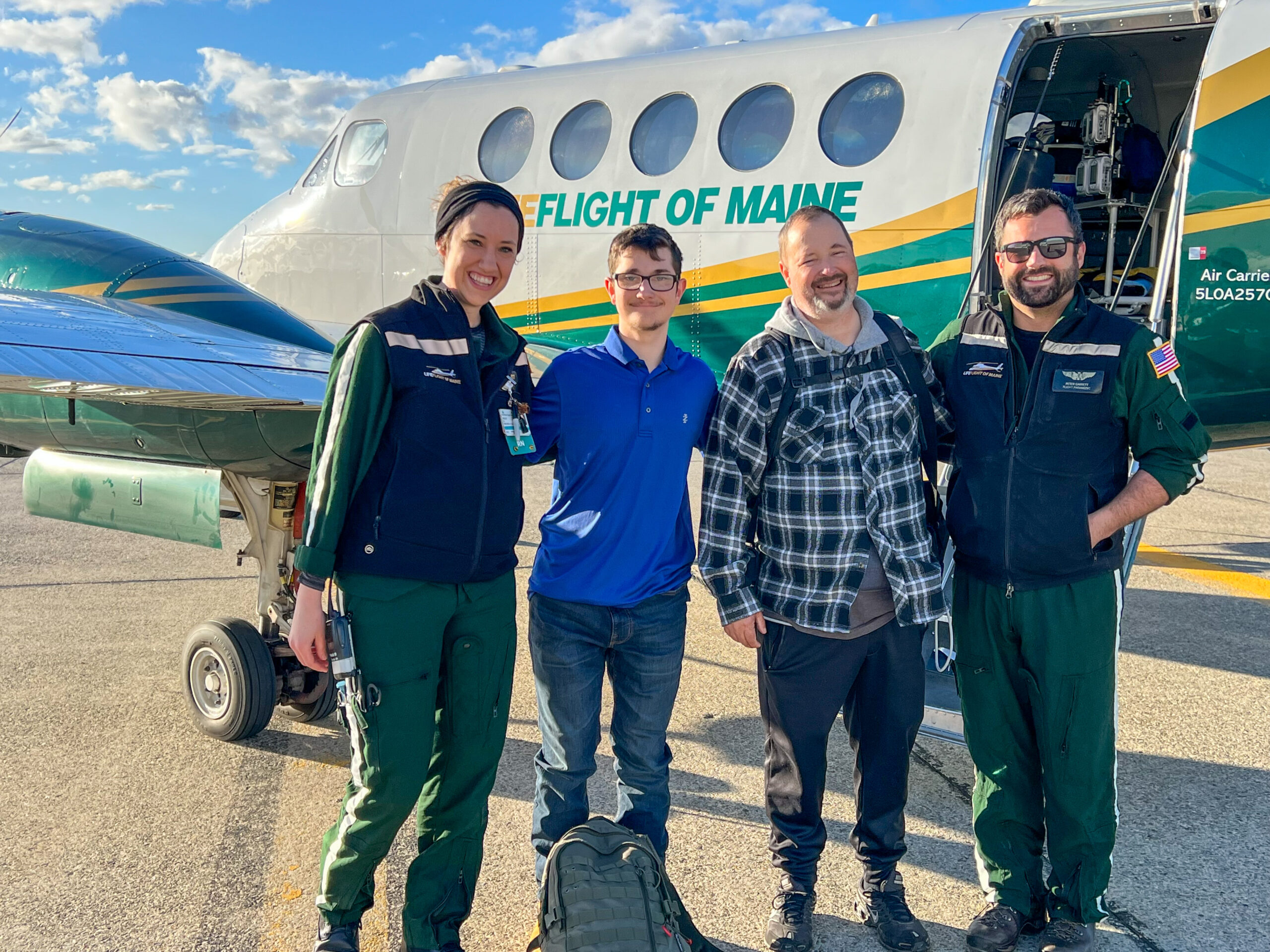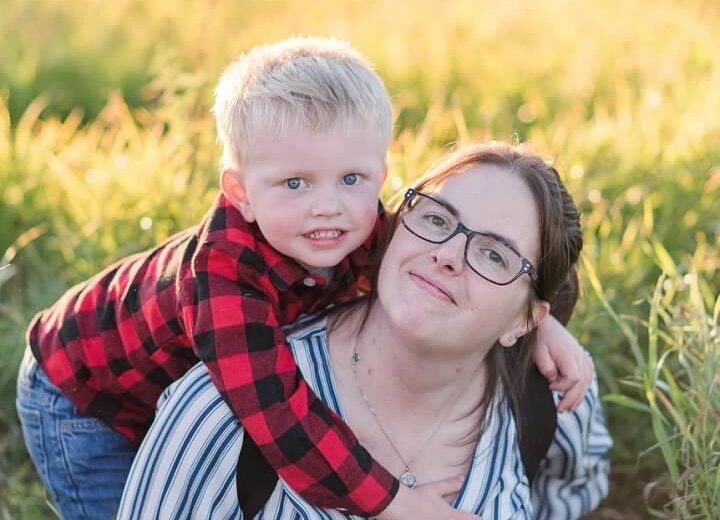For Patients

Our patients and their families are truly the heart of LifeFlight. We often meet those whom we care for on the worst day of their life, and an important part of our healing and resilience is to share their stories. We marvel and are inspired by their courage, determination, and grit as they move forward from that day.
We hold ourselves to the highest standards of patient care, safety, and clinical excellence. Our patients are why we are here, and we work tirelessly to ensure that each person entrusted to us is receiving the best care possible.
The resources below are for the patients we have cared for, their families, and their friends.
If you have additional questions, please don’t hesitate to contact us.

Patient Financial Services
We believe that payment for services should never be a barrier to the care that you or your loved one needs.
As a nonprofit, LifeFlight provides services to patients regardless of their insurance status or ability to pay for the cost of medical care.
Similar to hospitals, LifeFlight bills patients’ insurance for care. LifeFlight works hard to be in-network with most commercial insurance carriers and is enrolled as a provider with Medicare and MaineCare.
Charity Care
LifeFlight has a robust charity care program to help patients struggling to cover costs not covered by insurance.
Patients needing LifeFlight services generally have significant other medical expenses. LifeFlight works diligently to be as cost-efficient as possible.
We encourage patients to contact us if they have questions or concerns about their bill from LifeFlight.
For insurance and billing questions please contact our billing office:
Phone: 207-275-0294
Fax: 207-275-2977
Email: lifeflightbilling@lifeflightmaine.org
Please mail your completed application to LifeFlight of Maine at P.O. Box 796 Bangor, ME 04402-0796.

Share Your Patient Story
LifeFlight of Maine cares for and sees patients for a short time, and our goal is to restart the clock on what is sometimes the worst day in a patient’s life and give them that day and the future back. We are always interested in patients’ stories, and many patients and their families are interested in meeting the LifeFlight teams and seeing the operation.
We welcome patients and their families to visit and share their stories but as our bases are in hospitals and airports we need to schedule visits in advance.
For information on how to meet your LifeFlight team and share your story contact Kate O’Halloran, mohalloran@lifeflightmaine.org.
Grateful Patient Program
Many patients have told us that expressing gratitude helped them overcome the stress and trauma surrounding their medical event. The LifeFlight of Maine Grateful Patient Program is one way for patients to say thank you, build awareness, and help raise funds to ensure LifeFlight crews can continue to answer the call for help from those who need it most. Learn more about the Grateful Patient Program.

Patient Privacy
LifeFlight protects the privacy and confidentiality of your health information and any other information you share with LifeFlight. We do this because it is the right thing to do and is also required by law. When you need healthcare, you give information about yourself and your health to our clinical teams. This includes insurance coverage financial information, contact information, and other personal information.
We use this information for various purposes, including providing you with emergency medical services, obtaining payment for this care, and conducting and supporting our operations. We also create records for these same purposes. These records may be in paper or electronic form. All of this information is called “protected health information” (or “PHI”) or “health information.”
Our privacy notice describes how we use your health information.
LifeFlight maintains compliance with federal and state patient protections including the prevention of surprise balance bills for out-of-network services and business practices.
No Surprises
Your Rights and Protections Against Surprise Medical Bills
In 2021 Congress passed additional provisions relating to the Public Health Service legislation. A major provision is the No Surprises Act (NSA) developed to protect patients from unexpected, surprise balance bills from out-of-network healthcare providers.
LifeFlight of Maine has never issued a surprise bill to a patient, and we work to contract with the major health insurance carriers in Maine. We are considered in-network with these carriers and under our agreements, we will not bill a patient for more than the plan copayments, coinsurance, deductibles, and cost-sharing amounts.
For patients with insurance from a carrier that we are not in contract, we only bill you for the cost-sharing amount consistent with the plan’s in-network cost-sharing amounts.
Under the No Surprises Act you are protected from balance billing for:
Emergency services
If you have an emergency medical condition and get emergency services from an out-of-network provider or facility, the most the provider or facility may bill you is your plan’s in-network cost-sharing amount (such as copayments and coinsurance). You can’t be balance billed for these emergency services. This includes services you may get after you’re in stable condition, unless you give written consent and give up your protections not to be balance billed for these post-stabilization services.
You also have the following protections:
You are only responsible for paying your share of the cost (like the copayments, coinsurance, and deductibles that you would pay if the provider or facility was in-network). Your health plan will pay out-of-network providers and facilities directly. Your health plan generally must:
- Cover emergency services without requiring you to get approval for services in advance (prior authorization).
- Cover emergency services by out-of-network providers.
- Base what you owe the provider or facility (cost-sharing) on what it would pay an in-network provider or facility and show that amount in your explanation of benefits.
- Count any amount you pay for emergency services or out-of-network services toward your deductible and out-of-pocket limit.
If you believe you’ve been wrongly billed, please visit: http://www.cms.gov/nosurprises. For more information on the No Surprises Act and for payment disputes, or you may call CMS at 1-800-985-3059.
What is “balance billing” (sometimes called “surprise billing”)?
When you see a doctor or other healthcare provider, you may owe certain out-of-pocket costs, such as a copayment, coinsurance, and/or a deductible. You may have other costs or have to pay the entire bill if you see a provider or visit a healthcare facility that isn’t in your health plan’s network.
“Out-of-network” describes providers and facilities that haven’t signed a contract with your health plan. Out-of-network providers may be permitted to bill you for the difference between what your plan agreed to pay and the full amount charged for a service.
This is called “balance billing.” This amount is likely more than in-network costs for the same service and might not count toward your annual out-of-pocket limit.
“Surprise billing” is an unexpected balance bill. This can happen when you can’t control who is involved in your care—like when you have an emergency or when you schedule a visit at an in-network facility but are unexpectedly treated by an out-of-network provider.
DOT Hotline
States are responsible for regulating the medical services provided by air ambulance operators and the insurance issues related to those services.
- Ambulance licensing: Maine EMS/ Department of Public Safety
- Insurance reimbursement: State Superintendent of Insurance
In addition, LifeFlight maintains compliance under the Federal Aviation Administration and the U.S. Department of Transportation (DOT) which oversees the Airline Deregulation Act regulation of the prices, routes, or services of an air carrier, including an air ambulance operator, in air transportation. While the DOT oversight is limited, the Office of Aviation Consumer Protection may pursue enforcement action against air ambulance operators who engage in unfair and deceptive practices.
For information on compliance with 49 U.S.C. Section 43202 please visit DOT Aviation Consumer Protection Division. Complaints and comments related to those perceived practices may be submitted to the Office of Aviation Consumer Protection using the online complaint form. Complaints are reviewed to determine whether an air ambulance is in compliance with federal law enforced by the Department protecting the rights of air travel consumers. Complaints to the DOT are also used to track trends or spot areas of concern that serve as the basis for rulemaking, legislation, and research.

